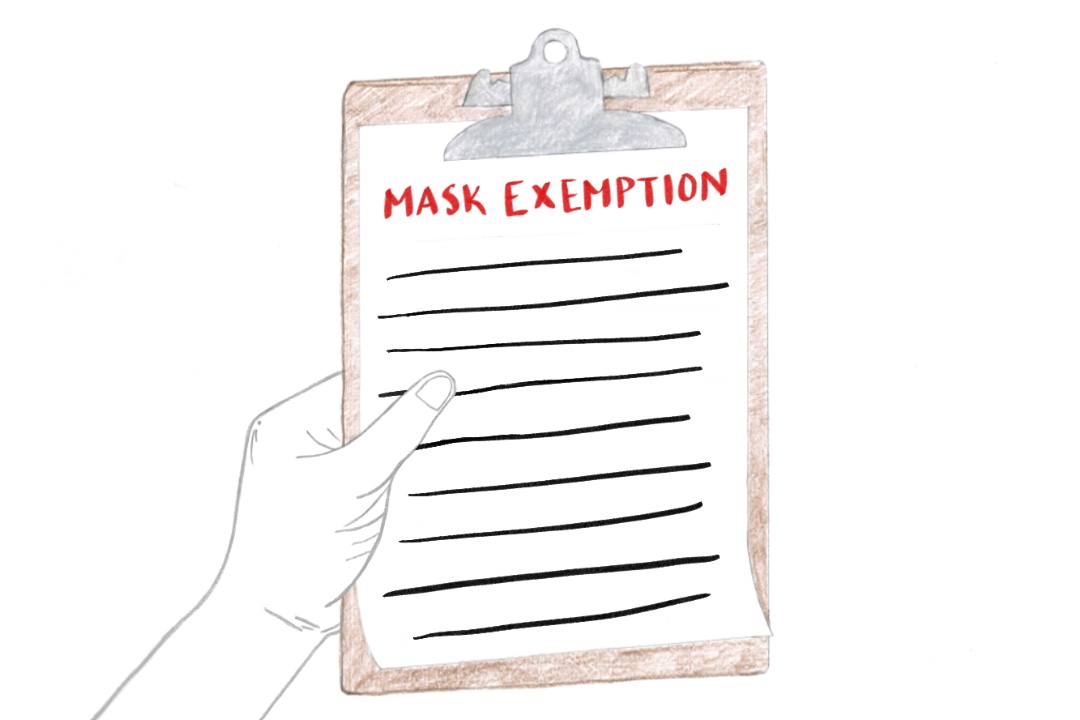As in-person classes continue, U of T has allowed its academic divisions to grant mask exemptions to individual professors for certain instructional activities, so long as they follow strict safety protocols and can prove that they have valid reasoning for requesting an exemption.
If the exemption is granted, instructors can ask students to remove their masks for a limited period of time to execute a certain activity.
Those who take advantage of the exemption must follow their respective divisions’ protocols, which can include providing students with time to voice their concerns, ensuring that students bring spare masks in case a mask is lost or gets dirty, and implementing physical distancing — which is normally ignored in classes where masks are worn.
Exemption procedure
While U of T requires masks to be worn in all indoor spaces on campus, it grants exemptions for instructional purposes when an instructor can prove that wearing a mask impairs the effectiveness of a learning activity.
Each division may also provide its own safety requirements for classes with mask exemptions.
In an email to French Professor Sébastien Sacré where the dean’s office approved his request for an exemption, it outlined the different considerations that he had to take to comply with the university’s policy on exemptions.
These requirements included that students should remove their masks intermittently rather than for the entire duration of an activity, that professors will dictate when students remove their masks and put them back on, that participants must place their masks in a clean container while they’re not in use, and that all participants must have a spare mask in case the first gets lost or dirty.
Instructors are responsible for providing students with notice of when an activity with a mask exemption might occur, which would give students time to confidentially raise questions or concerns. An instructor must also make sure that they are physically distanced from the first row of students, and that they put their mask on when they leave the instructional space.
Classroom effects
In an email to The Varsity, Sacré explained that he only requested the exemption for one language class which is being held in a classroom large enough to have proper physical distancing. He added that it’s mostly a “just in case” measure, since a student had expressed concerns at the beginning of the year that dictation activities would be harder to complete with masks.
“Teaching language skills requires the instructor to make their articulation not only as clear as possible but also as visible as possible to students,” Sacré wrote. He explained that masks might make it more difficult for students to follow the process of articulation, and brought up concerns about dictation activities, where students have to write down a passage the professor says aloud.
Sacré mainly wanted to have the flexibility to take off his mask in cases where it would help students learn. He added that if even one student were to express discomfort with him taking off his mask, he would not take advantage of the exemption.
A U of T spokesperson also wrote in a statement to The Varsity that although instructors could receive exemptions from their divisions, they could also supplement their classes with videos and livestreams.


